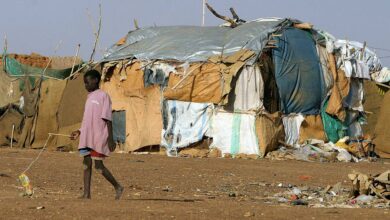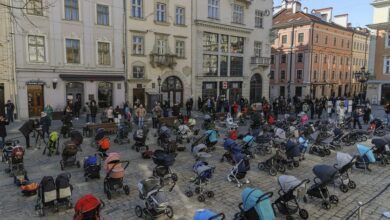Student leader detained under anti-terror law granted bail in Sri Lanka

Colombo, Nov 23 (EFE).- A court in Sri Lanka on Wednesday granted bail to a student leader, detained for over three months under a contentious counter-terrorism law for his role in protests against the government’s handling of an acute economic crisis in the country.
However, despite the court’s order for his release, Galwewa Siridhamma Thero, a member of the Inter-University Bhikku Federation, is still being held by the authorities.
“He is held over another case that was filed against him. He will be presented at an identification parade as part of that case. We think it will take a few days more for him to be released,” a leader of the Inter-University Students’ Federation (IUSF), Terrance Rodrigo, told EFE.
Thero was detained in August under the draconian Prevention of Terrorism Act (PTA), along with another IUSF leader, Wasantha Mudalige.
“Bail was granted for Siridhamma Thero because there was no evidence against him. There is no evidence against Wasantha (Mudalige) too, and we don’t know why he is held under the PTA,” Rodrigo said.
The continued detention of both student leaders and other participants in the anti-government protests that have rocked the island nation for months has sparked recent demonstrations.
On Friday, the police dispersed hundreds of protesters using tear gas and water cannons.
The use of counter-terrorism laws to silence protesters has been criticized by human rights organizations, including Amnesty International and the Human Rights Commission of Sri Lanka.
Sri Lanka is facing its worst economic crisis since gaining independence from the British in 1948.
High inflation coupled with a shortage of foreign currency reserves led the government to suspend the payment of its foreign debt in April and to negotiate for a bailout with the IMF that has not yet been secured.
The crisis triggered protests all over the island from the end of March, when thousands of people began to take to the streets to demand the resignation of then-president Gotabaya Rajapaksa.
On July 9, the unrest culminated in an attack on Rajapaksa’s official residence and the private residence of then-Prime Minister Ranil Wickremesinghe, forcing the president to step down and flee the country.
The crackdown on protesters has intensified since the formation of a new government under President Ranil Wickremesinghe, who succeeded Rajapaksa. EFE
aw-daa/pd





